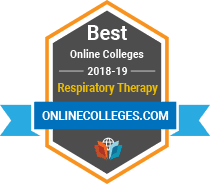Colleges for Online Respiratory Therapy Programs
We’ve done the research and created comprehensive guides to online schools for respiratory therapy. Continue below and dive into the details on respiratory therapy degree programs, tuition and fees, related career outlooks, employable skills and much more.
Nov 17, 2017 | By OnlineColleges Editors
